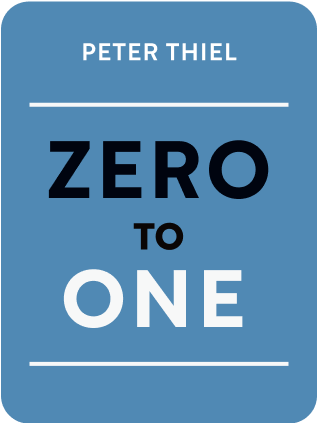

This article is an excerpt from the Shortform summary of "Zero To One" by Peter Thiel. Shortform has the world's best summaries of books you should be reading.
Like this article? Sign up for a free trial here .
Is competition good for business? Is there such a thing as “healthy competition”?
Entrepreneur Peter Thiel believes that the idea of healthy competition is a myth. But it’s a myth that is so deeply ingrained in our society that it tends to exercise a destructive influence on our business strategies. As such, Thiel spends a chapter in his book Zero to One exposing and debunking the myth.
Keep reading for Peter Thiel’s take on why competition is bad.
Competition in Business
Is competition good for business? Thiel says no. He explains that the school system instills the importance of competition in students from an early age by forcing students to compete for grades. Schools also tend to teach a uniform curriculum, rather than catering to individual students’ strengths and interests. This parallels the model of perfect competition by minimizing the differentiation between products—in this case, the “product” is a student’s work.
Similarly, workers must compete for raises and promotions by conforming to companies’ performance expectations. The perception of conflict is so pervasive that war metaphors in business are commonplace: Companies talk about their labor force, their marketing campaigns, and their target customers. According to Thiel, this creates a competition mentality that blinds us to opportunities to create new things. This is his chief argument for why competition is bad.
Fighting and Losing
According to Thiel, businesses often get so caught up in power struggles that they lose sight of their core business and make poor decisions. They waste money reinventing each other’s products instead of creating new things and overestimate the value of the markets they’re competing for.
As an example, he discusses the rivalry between Microsoft and Google, comparing them to the Montagues and Capulets from Shakespeare’s Romeo and Juliet. He points out that the rivalry between these two companies made little business sense, because their core competencies were completely different: Microsoft specialized in operating systems, Google in search engines. Yet because they saw each other as rivals, they started introducing products just to compete with each other: Microsoft built a search engine (Bing) and Google built an operating system (Chrome). Thiel notes that while Microsoft and Google were locked in head-to-head competition, Apple surpassed both of them in value, depriving them both of the prestige they were competing for. He attributes this turn of events to their obsession over competing with each other.
Models of War and Business
Given the example of businesses’ competitive behavior, Thiel conjectures that seeking conflict is part of human nature. But why?
Thiel thinks it has to do with excessive similarity. Microsoft and Google were ideologically similar tech companies that both rose to prominence. Their products were different enough that they didn’t need to compete for market share, but they tried to compete for prestige—they both wanted to be the undisputed tech giant.
Again making reference to Shakespeare, Thiel discusses how the Montagues and Capulets were “alike in dignity”—they fought each other simply because they were equals with equal claim on the status and prestige that they both wanted to hold exclusively.
Thiel contrasts this with Karl Marx’s idea that people fight because their goals are incompatible. Marx believed people of different classes had different ideas about how society’s resources should be allocated, and that this was the source of conflict between them.
In Thiel’s view, Marx was wrong: People fight only when they are similar enough to want the same things, and want them enough to fight over them. Therefore, the solution to conflict is innovation. It’s better to create something new than fight over what already exists.

———End of Preview———
Like what you just read? Read the rest of the world's best summary of Peter Thiel's "Zero To One" at Shortform .
Here's what you'll find in our full Zero To One summary :
- Why some companies genuinely move the world forward when most don't
- How to build a company that becomes a monopoly (and why monopolies aren't bad)
- Silicon Valley secrets to selling products and building rockstar teams






